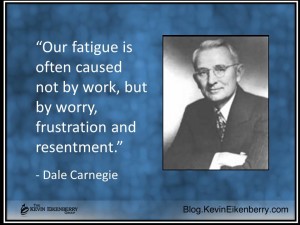
Tikki tikki tembo-no sa rembo-chari bari ruchi-pip peri pembo! I can still recite the name of the favored son in the Chinese folktale, Tikki Tikki Tembo, that was introduced to me over 40 years ago. Maybe it was the fun cadence or the silly rhyming of the words that made such a lasting impression. Whatever made it stick, just thinking about it today takes me right back to the plaid loveseat where my mom read that book to my sisters and me.
As yet another standards evolution is at the forefront of educational reform, and teachers are striving to increase rigor and present lessons with relevance to real world problems, I fear that those lasting memories created by picture books may be replaced by more “substantive” learning experiences. With testing, accountability, and the push to cover more content in less time so that our students are prepared for college and careers, I worry that picture books may get put on the shelf. Consider, for example, one of the primary conceptual shifts in the Next Generation Science Standards: “Science education should reflect the interconnected nature of science as it is practiced and experienced in the real world.” Can we address this shift and keep picture books in our science instruction? Great teachers know that we have to hook the kids first, and one of the best ways to do that is with a picture book.
Every once in awhile, I stumble across a picture book that reminds me how important it is to integrate those fun, humorous, and sometimes silly stories into sound content and classroom activities. Too Much Glue is one of those books. Written by teacher and children’s librarian, Jason Lefebvre, Too Much Glue was conceived when a movement activity in his preschool classroom went awry.
“I set up an art project with glue in cups on the art tables, but decided to play a movement game with the students first. I called out an animal and the kids moved around the room like that animal until I said the word sleepy. Then the kids would fall to the floor and pretend to sleep until I called out the next animal. In all of the excitement, one of the cups of glue overturned and glue was dripping off of one of the tables and on to one of my little ‘sleeping animals.’ Later, during circle time, I noticed one child with a giant splotch of glue on his shirt. As I was getting him a new shirt I started to think of what would have happened if I had never noticed and the idea was born.”
Jason also shared that the main character, Matty, is a combination of every precocious, energetic, quirky student. “He’s the kid who drives you nuts, but you love him just the same.”
Too Much Glue is the perfect springboard for a hands-on, inquiry-based unit about the science of polymers and adhesives in the world around them. Elmer’s has created a free instructional unit to help teachers engage students in understanding the polymers that create the fundamental building blocks of adhesives essential to so many products that we use every day. This 22-page guide provides cross-curricular lessons in English/language arts, writing, science, history, and art for students in grades K-5.
In addition, we’ve created The World of Glue Teaching Toolkit including the instructional guide, Elmer’s School Glue, Elmer’s School Glue Naturals®, Elmer’s Classic Glitter Glue, an official Elmer’s 1st Day t-shirt, and a signed copy of Too Much Glue that we want to share with 50 members of the Elmer’s Teachers Club. Tell us what you think about The World of Glue Teaching Toolkit in the comments below for a chance to win one for your classroom.
The World of Glue Teaching Toolkit was created by Elmer’s Products, Inc. in cooperation with The Adhesive & Sealant Council and DPNA International, Inc.
Too Much Glue by Jason Lefebvre (Flashlight Press Books) has been recognized by the 2013 ABC Best Books for Children.
- See more at: http://www.elmers.com/teachers-blog/post/2013/11/18/Take-Those-Picture-Books-Off-the-Shelf.aspx#sthash.exuVecie.dpuf












